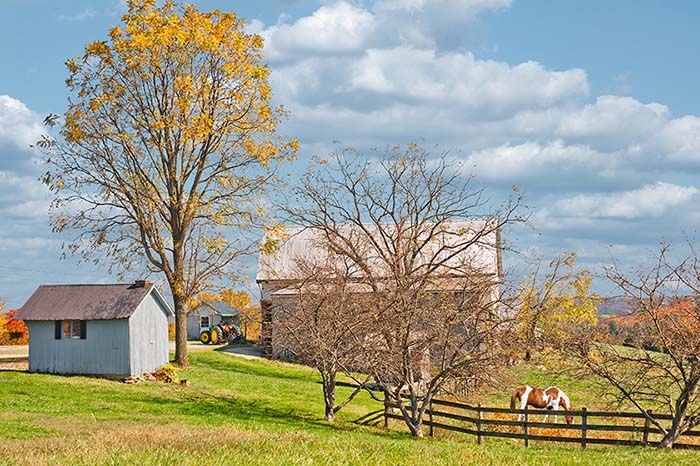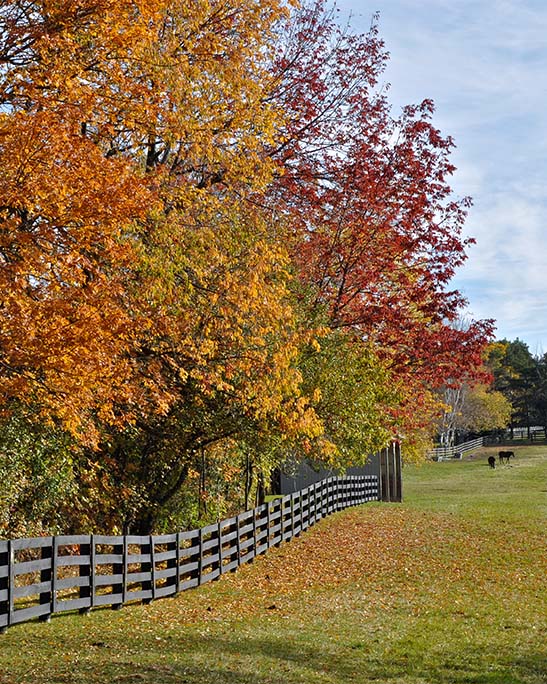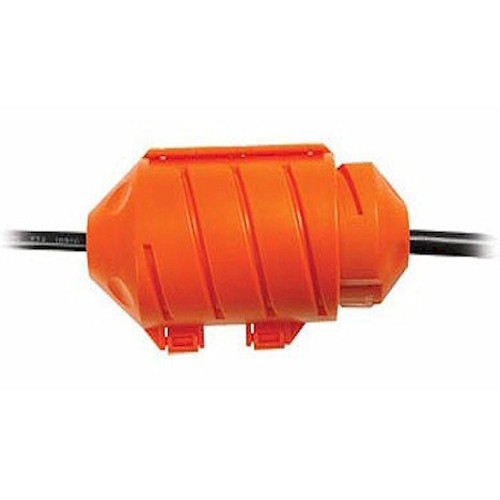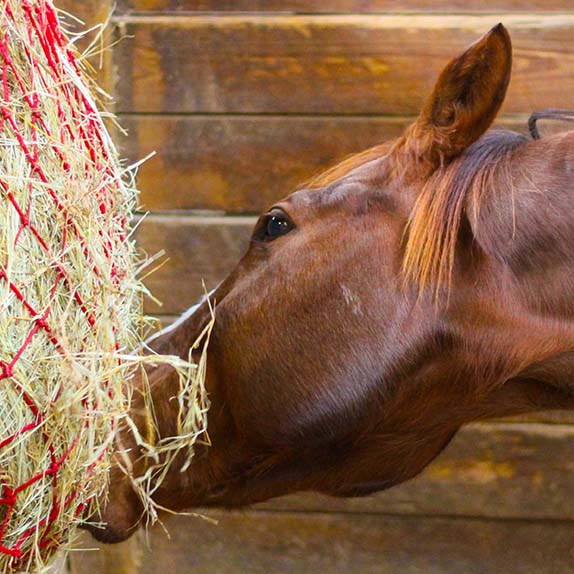
When the chill of fall weather hits, equestrians know that Old Man Winter is about to knock at the barn door. Before the snow flies and buckets begin to freeze, it is important that you take the time to properly prepare your barn and paddocks for the months ahead. You know what they say: ‘An ounce of prevention is worth a pound of cure’ and this is truly applicable when it comes to making sure that your horse and livestock barn is ready for the rigors of winter weather. In this blog post, we discuss ways to ensure that you are prepared for the season ahead.
Fencing

The fall is the ideal time to walk your fence line and perform all of the necessary repairs. Make sure that the posts are sturdy and free from rot or rust (depending on the fencing material). The fencing boards, tape, or wire should be taut and strong. Trudging through the snow to fix fencing is a difficult task and some repair jobs, such as replacing fence posts, are practically impossible once the ground freezes.
Take the time to test the electric fence chargers and confirm that they are operating properly. Use a fence tester, such as the Zareba Eight-Light Volt Tester, to verify that the correct voltage is being maintained throughout the fenceline. By taking the time to test the efficacy of the charger, you can ensure that your livestock will stay safely contained throughout the season.
Water
If you plan to use heated buckets and bucket de-icers to ensure adequate hydration during the winter months, it is time to get them out of storage and check to see that they are in working condition. Check the condition of the items carefully, with additional time spent inspecting the electrical cords to prevent potential shorts and fire hazards. If the cord is frayed or if the unit trips your GFCI outlet after being plugged in, it is recommended that you replace your bucket or de-icer before use.
For increased protection from ice and snow, consider using a cord connection cover, such as the Cord Connect from Farm Innovators. These cord covers insulate and waterproof the electrical connection between the tank de-icer and the extension cord to prevent shorting and damage due to moisture and extreme temperatures.

Cord Connect
The Cord Connect locks cords together to keep your connection dry, which can be very helpful in the winter months.
Even if you choose not to use bucket heaters or de-icers, make sure that your water line is well insulated and you are not at risk of it freezing if the temperatures suddenly plummet. Access to free-flowing, fresh, clean water is a basic necessity for health.
Major Structures
If you need to perform any repairs to your barn, stalls, or run-in structures, fall is truly your last chance before the snow piles in. Try to eliminate drafts while still allowing ample ventilation. Proper ventilation is essential for the health and wellness of your horse’s and livestock’s respiratory systems, a barn which is completely air-tight will actually cause more harm than good. Take the time to repair any broken siding and replace any missing shingles. We also recommend that you thoroughly investigate the integrity of the roof and beams to verify that they will be able to withstand heavy snow loads without caving in.
If you are planning to store your tack in the tack room over the winter months, make sure that it is properly insulated; tack should be stored in above freezing temperatures to maintain its integrity. For equestrians who blanket their horses, you will also need to plan a place to hang wet blankets to dry when their horses come in the evening.
Pest Prevention
When the temperatures begin to drop, pests and rodents are looking for a warm place to call home. Deter pests from entering your barn by properly storing grain products in an airtight container and cleaning up spills immediately. If possible, close the windows and doors to your feed room and tack room to prevent an infestation. If you do find that rodents are moving into your barn, the earlier you take action the easier they are to eradicate. Consider using traps or non-toxic pest repellents, instead of poisons, to keep your farm animals (especially barn cats!) and local wildlife safe and healthy.
Ample Food Supply

Stock up on feed and hay before the snow flies to ensure that you always have enough on hand. Take the time to inventory your forage and confirm that you have enough to properly feed your animals during the winter months. If you do not have an adequate amount of forage on hand, check with your supplier to verify that they will be able to provide you with hay throughout the season. Often, animals’ caloric requirements increase in colder temperatures, so keep this in mind and plan to feed extra forage and grain.
Snow Removal
When performing winter farm preparation, devising a plan for snow removal and snow storage is important. Whether you plan to shovel, snow blow, plow, or utilize the bucket of your tractor, you will need to make sure that your pathways are clear of debris and safe to travel. Quickly locate your snow shovel and confirm that it is ready for the first winter storm.
You will also need to plan a location for snow piles because they can take up a considerable amount of space, especially in years with a large amount of snow. Consider moving farm equipment that will not be in use over the winter months to allow for more room for these snow piles.
If you plan on using your tractor or snow blower, bring your farm supply equipment in to be serviced and ensure that it is in top working condition. You will thank yourself when they fire up quickly on the coldest mornings of the year!
Make a Plan
You can never be too prepared for the winter months. As a part of your winter preparations, we encourage you to make a plan for emergencies. What will you do in the event of a power outage? How will you handle extreme snowfall? What will you do if you are stranded on the farm in a blizzard? By taking a few minutes to consider weather emergency situations, you can make sure that you are prepared for anything.
Whatever the weather may be, we provide you with everything that you need to properly care for your horses and livestock. At The Cheshire Horse, we have a passion for animals and the lifestyle that comes with them. If you have any questions regarding winter preparations for your farm or would like assistance choosing the best products for the winter season, we encourage you to speak with a member of our friendly and highly trained sales staff, all of which have hands-on experience caring for their beloved animals in extreme weather conditions.
